Towards the Mainstreaming of the Gender Perspective in the Escazú Agreement
Date:
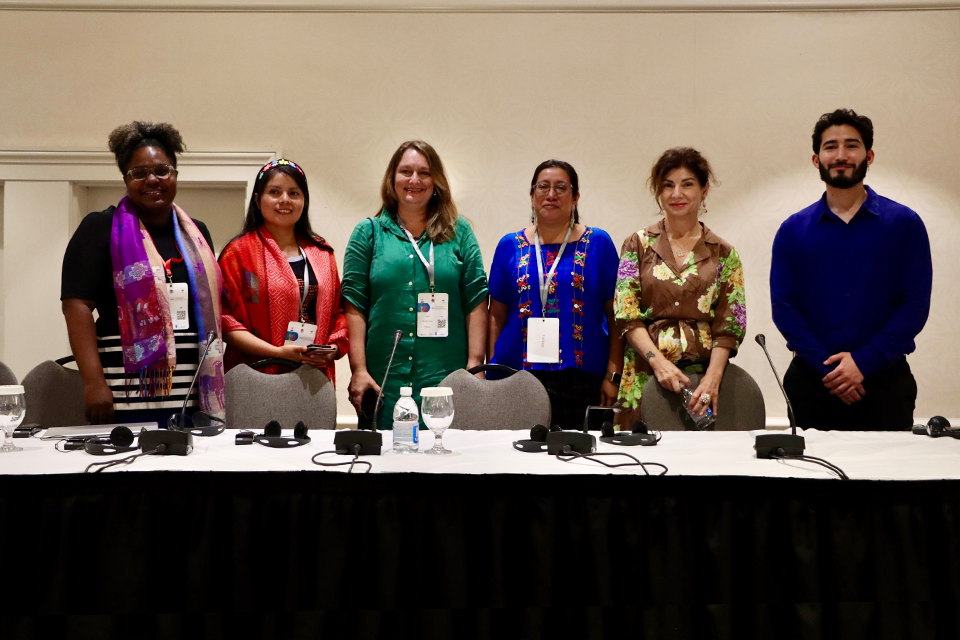
The Third Forum on Human Rights Defenders in Environmental Matters in Latin America and the Caribbean was held between April 7 and 10, 2025, in Saint Kitts and Nevis, a key space for deepening the implementation of the Escazú Agreement in the region. Convened by ECLAC in its role as Secretariat of the Agreement, the Forum has established itself in this third edition as a regional milestone to advance the discussion on the rights of those who defend the environment, land, and Mother Earth.
Over four days, individuals, groups, and defender organizations from across Latin America and the Caribbean gathered in the city of Basseterre to share experiences, reflect on common challenges, and outline collective strategies. ECLAC placed gender equality at the heart of the Forum's agenda, recognizing that women defenders face distinct risks and structural barriers that require specific responses—and that their contributions are essential for biodiversity preservation, care for life, and sustainable development.
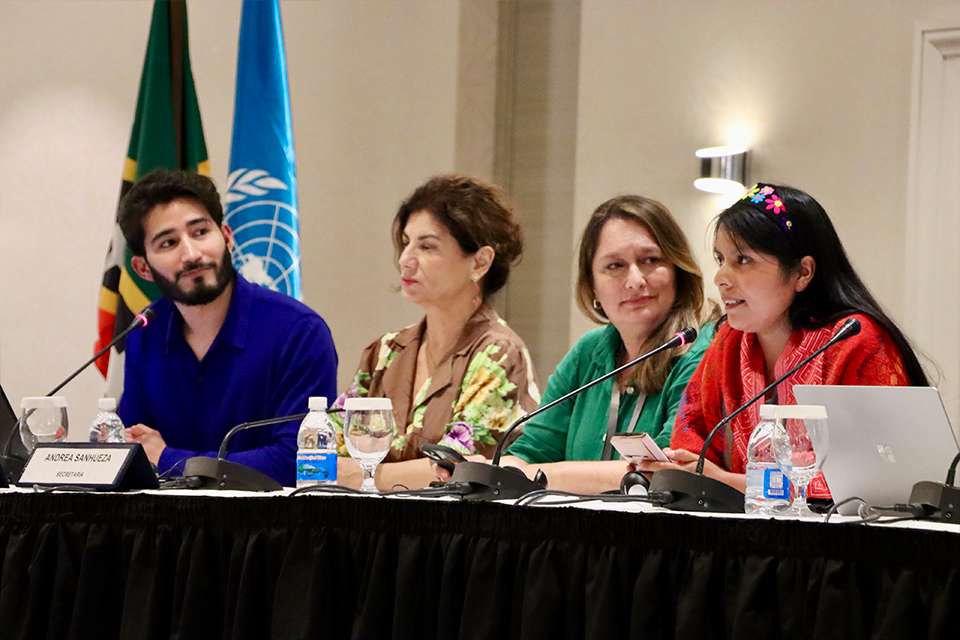
On the final day of the Forum, UN Women supported ECLAC in the logistical coordination and technical facilitation of an in-person consultation workshop for the development of the Guide for Mainstreaming the Gender Perspective in the Implementation of the Escazú Agreement, based on the annotated outline prepared by ECLAC. Approximately 40 people participated in the workshop (more than 70% were women), representing over 30 organizations and networks of defenders in Latin America and the Caribbean. They shared testimonies, experiences, and good practices. Contributions focused on the annotated outline's process, approach, and overall contents; current challenges and barriers; other possible considerations and measures to be included in the Guide; and next steps.
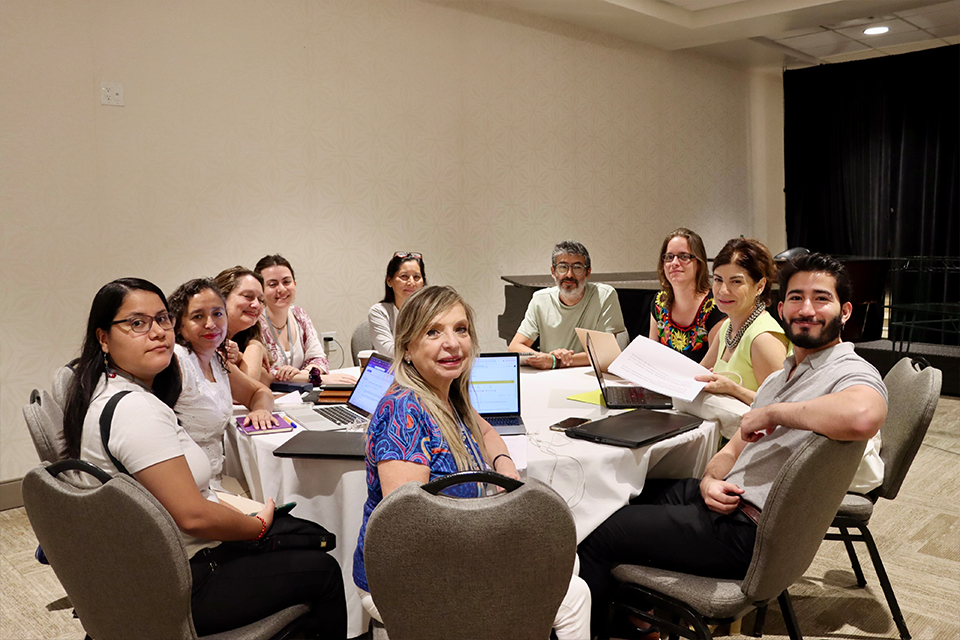
The Guide will be a fundamental tool to support State Parties in systematically incorporating the gender perspective across all pillars of the Escazú Agreement: access to environmental information, public participation in environmental decision-making processes, access to justice in environmental matters, and the protection of individuals, groups, and organizations that defend human rights in environmental contexts.
The discussion also explored how to further advance gender mainstreaming beyond the development of the Guide. Danielle Andrade (Jamaica), former Elected Public Representative for the Escazú Agreement, noted: "Several countries, particularly in the Caribbean, are in the process of developing roadmaps for the implementation of the Escazú Agreement. And we felt that this was an opportunity for state parties to consider integrating gender response measures into those roadmaps, which could be implemented in the short to medium term."
The choice of Saint Kitts and Nevis as the Forum's venue was no coincidence: as a small island state highly vulnerable to climate change, it exemplifies the challenges faced by communities throughout Latin America and the Caribbean—particularly in insular contexts, often marginalized in multilateral spaces—that require guarantees of access to environmental rights and the ability to defend their territories without fear. This geographic decentralization reinforces the inclusive nature of the Escazú Agreement, promoting greater regional coordination in environmental justice and human rights.
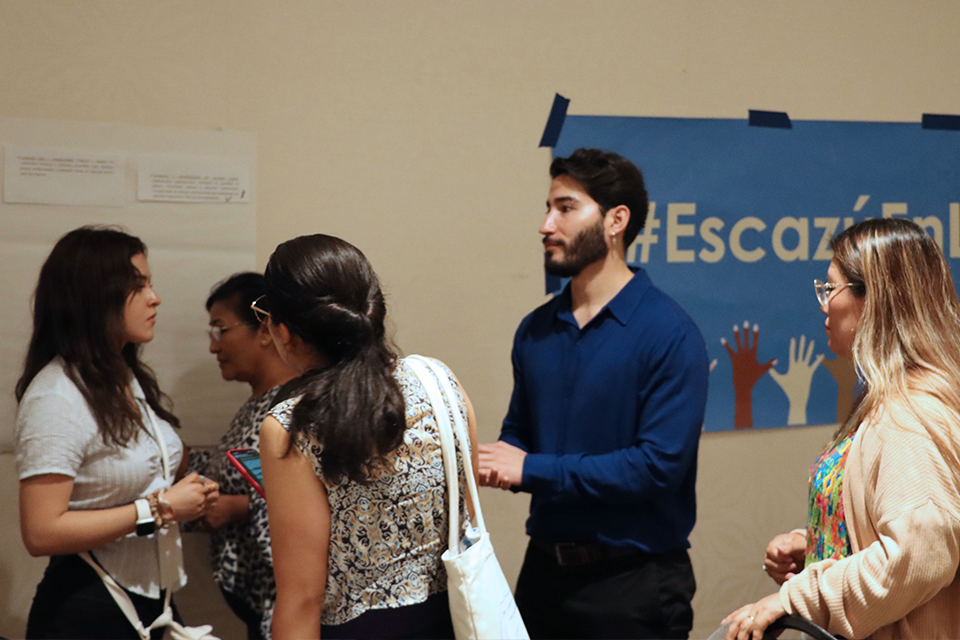
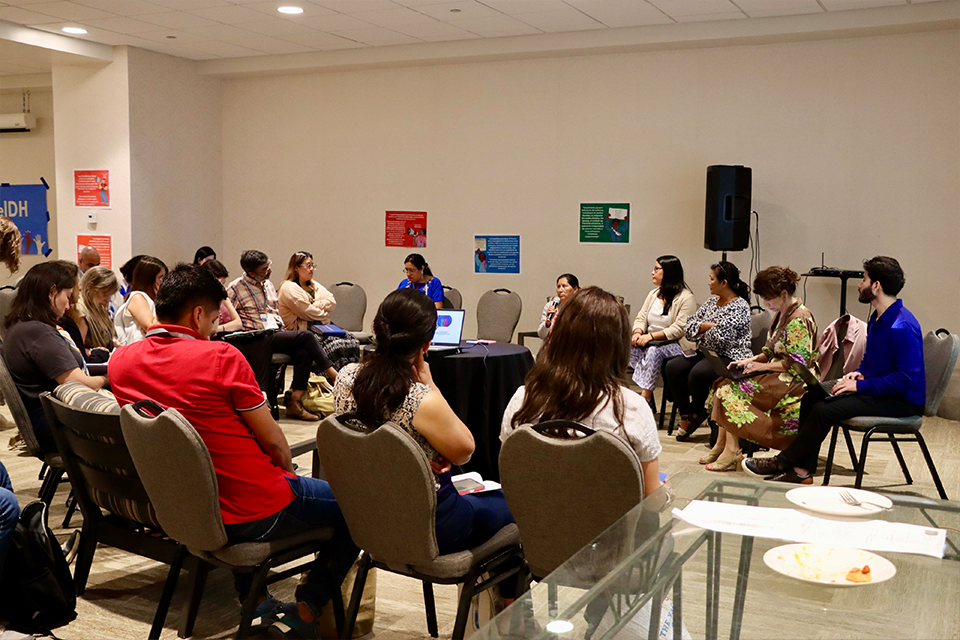
UN Women's participation in this Third Forum is part of a broader support process aimed at consolidating the Escazú Agreement as a gender-responsive legal and normative framework. Among other milestones, the engagement includes the meeting before the Second Annual Forum of Defenders, held in September 2023, which highlighted the urgent need to strengthen women's networks and their participation in the mechanisms of the Agreement. Furthermore, during COP3 of the Escazú Agreement in April 2024, UN Women facilitated a dialogue with women defenders to gather their needs, proposals, and priorities. This exchange was crucial for the coordination between the Public and State Parties ahead of the adoption of Decision III/4 on Gender Mainstreaming, through which the Secretariat was requested to prepare the Guide "with the support of the United Nations Entity for Gender Equality and the Empowerment of Women (UN Women), as well as other United Nations agencies, funds," and programs." Complementarily, the regional meeting held in Bolivia and organized by the Regional Hub on Gender, Environment and Climate Justice of UN Women promoted coordination among women defenders' organizations and networks in relation to other environmental processes—such as the COPs on Biodiversity, Climate Change, and Desertification—thus reinforcing synergies between multilateral frameworks and advocacy strategies from the territories.